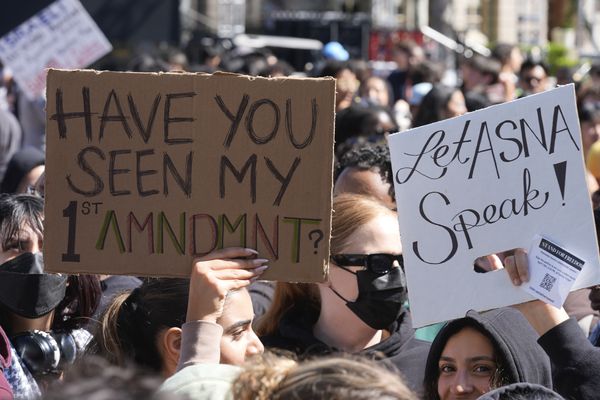
The protagonist of Penelope Mortimer’s 1958 novel, Daddy’s Gone a-Hunting, is a 37-year-old housewife named Ruth, who is sliding into a madness of midlife suffocation and despair. Alone in her kitchen early in the novel, Ruth drinks gin and tentatively confesses to an imagined listener the source of all her angst. When she married Rex, her trivial bully of a husband, at 18, she was three months pregnant with their daughter, Angela. “She doesn’t know, of course,” Ruth explains, to no one. “I didn’t want to get married. I didn’t want Angela. We had to get married. There was nothing else to do.”
The burden of consequence on Ruth is a dead weight. She has no perceptible life force, no desires, less shape than crumpled tissue paper. Her fuzziness is countered in the novel by Mortimer’s caustic narration, which laces Ruth’s ennui with a ferocious current of social critique. Daddy’s Gone a-Hunting, now being reissued in the U.S., was published several years before Betty Friedan’s The Feminine Mystique. But the novel, seemingly set in the late ’50s, appears to anticipate what Friedan proposed as “the problem that has no name”—the profound unhappiness of a generation of educated women trapped in the domestic sphere with no way out. In one chapter, Mortimer likens the women of “the Common,” Ruth’s suburban community, to icebergs, outwardly “bright and shining” but uniquely scratched up under the surface. “Some are happy,” she writes, “some poisoned with boredom; some drink too much and some, below the demarcation line, are slightly crazy; some love their husbands and some are dying from lack of love; a few have talent, as useless to them as a dying limb.” Together, “their energy could start a revolution, power half of Southern England, drive an atomic plant.” Deprived of an outlet, however, it tends to short-circuit.
[Read: The redemption of the bad mother]
Ruth’s despair is clearly rooted in her accidental pregnancy as a teenager, her necessary marriage to a man she despises, and her obligation to care for an unwanted child when she was still essentially a child herself. The novel’s animating force is a simple, repetitive plot point: Her daughter, the now 18-year-old Angela, announces to Ruth that she’s pregnant. Ruth becomes angry; she also finds, once again, that she’s being forced by circumstance into acting against her will. “It wasn’t that she had taken a step; she had been pushed, stumbling forward and finding responsibility thrust into her arms, finding herself committed without knowing how it had happened,” Mortimer writes. Angela is intent on having her pregnancy terminated, which was unlawful in the U.K. until 1968. To save her daughter from repeating history, Ruth has to balance conflicting impulses—her desire to protect Angela from the risk of an illegal procedure versus her desire to secure for her a future less miserable than her own.
Daddy’s Gone a-Hunting is largely based on Mortimer’s own experiences. Like Ruth, she was married at 19 and had her first child in short order; like Ruth, she helped her eldest daughter get an illegal abortion when she became pregnant while studying at a university. In a later, semi-autobiographical novel, The Pumpkin Eater, which explores marital infidelity and disaffection, Mortimer presented scenes of middle-class life with a remarkably acidic touch, stripping away any vestiges of illusion or pretense. With Daddy’s Gone a-Hunting, she steps lightly into a sparse and immensely tricky genre, the literature of parental regret. Ruth’s resentment of Angela and Rex is an “unmentionable thing,” a secret “battened down so long that [it] had become almost unrecognizable as the truth.” And yet Angela has always felt it; her life has been defined by “being rejected, abandoned, betrayed by someone who ought to love her.” (Names shiver with symbolism throughout Mortimer’s story: Ruth, in British English, means “repentance,” “remorse,” “regret.” Rex is the cruel king of his sturdy, commuter-belt castle; during the week, he disappears Londonward to his job as a dentist, performing countless “careful excavations into rotting bone.” Angela, meaning “messenger,” is the character whose circumstances force Ruth into action.)
Mortimer doesn’t theorize or expound; she lacerates, instead, with description. Her 64-year-old novel is, through its atmosphere and circumstance, one of the most compelling arguments for freedom of reproductive choice that I’ve ever encountered. Without choice, she suggests, we’re condemned to follow tramlines of predestination that punish everyone involved. Without choice, everyone suffers, including the children born not out of love but resentment. (In the novel, Angela has always sensed how differently both her parents seem to regard her compared with her two younger brothers, both born by choice.) Ruth’s psyche in the book is inexorably stunted by her inability to define herself before she had children. Reading Mortimer, I was reminded again and again of Merritt Tierce’s 2021 New York Times essay—published decades after Daddy’s Gone a-Hunting was written—outlining what getting pregnant at 19 had cost her. “My personhood was erased,” she wrote, “and overwritten with MOTHER before I even knew who I was.”
[Read: Becoming a parent during the pandemic was the hardest thing I’ve ever done]
To deprive women of the ability to choose when and whether they become parents, the novel insinuates, is to deprive them of the ability to ever be or become fully human in their own right. In one chapter, Angela lies sleeping while Mortimer sketches out a surreal scene in which the teenager seems to have a conversation with her subconscious:
What does myself look like? I mean, who am I?
You are an examination result, dear. Perhaps, in time, an Honours Degree. Try harder.
But myself—I mean myself?
Perhaps you could find yourself in the Guides, or in the New Testament somewhere. If not, we can provide various substitutes, such as Joan of Arc, Florence Nightingale, Nurse Cavell. It’s really none of our business, but we do keep a few heroines handy, just in case.
Angela’s unformed sense of self is mirrored in the novel by Ruth’s childlike state. “For the first time in their history, women are becoming aware of an identity crisis in their own lives,” Friedan wrote in 1963, “a crisis which … will not end until they, or their daughters, turn an unknown corner and make of themselves and their own lives the new image that so many women now so desperately need.” The moment, she argued, was “a turning point from an immaturity that has become femininity to full human identity.” As harsh as Mortimer’s exploration of motherhood might be, there are discernible signs of change on the horizon. Angela never for a moment considers marrying her awful boyfriend and keeping her baby, as her mother had done before her. When Ruth asks her if she wants to have an abortion, Angela is “bewildered, like someone asked whether they wanted to go on living.” Ruth is easily able to tap into a whisper network of women offering advice and endorsements: “There was some Irishman, Susan Raynes said he was a real angel,” one friend tells her. “Then Yvonne used to swear by some man in Chelsea somewhere.” She has other recommendations too: Epsom salts; “something you can put on cotton wool”; soap.
With even the most longed-for baby, the identity shift into motherhood is necessarily painful, a sloughing-off of old needs, priorities, and desires accompanied by the primal absorption of another soul, another physical body into yourself. “Bone of your bones, curious flesh of your flesh,” Ruth thinks. “Not a hair, not a fingernail, not a particle of skin is the same as it was at the moment of birth, but still the ageing body that was once a child is part of you.” The love Ruth has for Angela is elemental and difficult. Still, it drives her to help Angela make the choice that Ruth herself couldn’t: the choice not to have the baby that would deny her a future of being anything but a mother.







